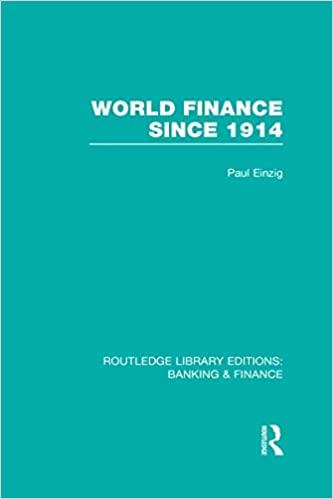Question
Case 3 Jake Richards is surprised to hear from Paul Augustus, his accountant for many years, that income from his tree farm is just over
Case 3
Jake Richards is surprised to hear from Paul Augustus, his accountant for many years, that income from his tree farm is just over $150,000 for the year and that his land and other assets are valued at almost $2,000,000. The $600,000 he owes to the bank is not a surprise. Twenty years ago Jake realized that with seven long days of backbreaking labor a week, his western Massachusetts dairy farm was just about breaking even. Without his wifes income as a high school science teacher and the health insurance that came with it, the young family would have been struggling.
Along the way, Jake sold the dairy herd, but he did want to keep the land that had been farmed by his family for three generations. At the time, his plan was to repurpose the farm and some of its equipment by boarding horses, selling hay bales to construction companies, starting a small landscaping business, and plowing snow in the winter. Almost on a whim, he planted a few acres with seedling-size blue spruces and Fraser firs, expecting to sell them as Christmas trees. He quickly found that he could use them more profitably in his landscaping business and that he
could sell them to local nurseries and other landscapers.
Gradually, he added plantings of other popular landscape trees: arborvitae, yew, dogwood, red maple, ornamental crabapple, pear, and cherry. Demand grew so rapidly that he gave up his other activities to concentrate on tree farming. He now has three fulltime employees along with his wife, two college-age children, and several of their friends working for him in the summer. He also owns and leases some rather expensive specialized equipment for planting, digging, and preparing the trees for shipping. Because the business has grown so rapidly and almost accidentally, Jake has not thought much about its organization. His accountant suggests that it is time to consider converting from an informal partnership with his wife and children to a more formal type of organization. Paul hands Jake some brochures on forming a regular corporation and two alternatives: a subchapter S corporation, or S corporation, and a limited liability company, or LLC. He asks Jake to look them over and get back to him in a week or two.
Required:
Use the case above to answer the following questions
- Enumerate and discuss three (3) key financial management decisions involved in the case above and give a specific example of each that relates to Richardses Tree Farm.
- Should the Richardses form a regular corporation or choose one of the hybrid forms? Explain if Yes or No.
- How does incorporating affect the familys overall risk exposure?
- How does incorporating affect the ability of the business to expand?
- Jake is concerned that if the business gets much bigger or if he should just decide to slow down and enjoy life a little more, he will need to hire professional management and possibly lose control over key business decisions. Are his concerns justified?
- Jake occasionally hires day workers, who may or may not be in the United States legally. What are his legal and ethical obligations with respect to this decision?
Step by Step Solution
There are 3 Steps involved in it
Step: 1

Get Instant Access to Expert-Tailored Solutions
See step-by-step solutions with expert insights and AI powered tools for academic success
Step: 2

Step: 3

Ace Your Homework with AI
Get the answers you need in no time with our AI-driven, step-by-step assistance
Get Started


